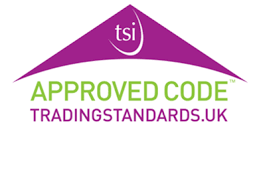St Andrews: 01334 850382
Glenrothes: 01592 654553
Email: info@rbgrant.co.uk
St Andrews: 01334 850382
Glenrothes: 01592 654553
Email: info@rbgrant.co.uk
In recent years solar PV renewable electricity producing systems have risen in popularity to become the UK’s number one desired home improvement. Despite this, lingering doubts still persist in many people’s minds as to whether they are worth the outlay.
Mike Marwick of local electrical firm and solar PV installers RB Grant Electrical Contractors, explains how to judge whether solar might be a worthwhile investment for you.
Since the Government introduced the Feed-in Tariff (FIT), which pays out a twenty year, tax-free, quarterly cash payment to households and businesses using solar PV to produce their own green electricity, interest in solar has taken off in a big way. Yet I still encounter the same concerns from householders, who are understandably anxious that the numbers can seem just too good to be true.
It doesn’t help that the rise in solar PV’s popularity has resulted in some unscrupulous firms ignoring the clear rules set out by PV’s governing body the Microgeneration Certification Scheme (MCS), to mis-sell solar systems, often at over inflated prices, creating uncertainty about whether or not the benefits of solar PV are real.
The bottom line is that the return on investment potential of a well sited and fairly priced solar PV system is nothing short of fantastic, however, ignore the guidelines and your investment can quickly turn into a white elephant. If you are interested in solar for your property, here’s what to look for to ensure you avoid the potential pitfalls:
Location, location, location. Where a solar PV system is positioned has a big influence on its performance. A typical household 4kW system facing South in the St Andrews area would be expected to produce something in the region of 3,750 units of electricity in a given year, which in turn would qualify for £650 of tax-free FIT payments, over and above the savings made by using the free, green electricity. Face the same system in a Northerly direction and that production would drop to a mere 1,800 units, or around £300 in FIT payments.
Any roof facing in the Southern half of the compass will give good production. Surprisingly, East / West facing properties have a slight advantage, as both the East and West facing roof spaces will perform equally well, potentially doubling the space available to locate panels.
Of course you can’t change the direction your roof faces but if you lack Southerly facing roof space, other options can be to mount on flat roof space if available, wall-mount, or ground-mount on purpose build frames. Don’t just take a solar salesman’s word for where the panels should go, dig out your compass and check for yourself. There may be a range of options available, so make sure you discuss them fully.
Why does it always rain on me? The clue is in the name – solar panels work best in sunlight, so it’s often assumed that they won’t perform well in our dreich Scottish climate. It’s a fair assumption, given that even some solar installers South of the border still believe Scotland to be permanently under a cloud and a no-go area for solar.
The truth however, is that the East coast of Scotland enjoys some of the highest levels of sunlight in the UK making this is one of the better locations in the country to site a solar PV system. Sceptics can go to the MET Office website for proof and don’t worry, I didn’t believe that fact either until I checked.
Fifty Shades of Grey. Never mind climate, a solar panel’s real enemy is shading. Chimney stacks, satellite dishes, neighbouring buildings and trees, can have a huge impact on the amount of electricity a solar system can produce.
If you invite a solar installer to quote for a system, make sure they provide you with a standard estimate for production which factors in any specific shading issues at your property (a requirement under MCS). Beware any installer who does not provide this.
There are steps an installer can take to counter the effect of shading, but where shading is severe, the best course of action may be to look at another renewable technology altogether. An honest solar installer will tell you this, however, for free, impartial advice you can always speak to the Government funded Energy Saving Trust.
Use it or lose it. Solar electricity is obviously produced during daylight hours, so if you have a working household you may find that there is no-one home during the hours of peak production. The electricity doesn’t get stored and will instead feed into the Grid, but this needn’t concern you unduly as the FIT payments are given on every unit produced, regardless of whether you use it or not.
To maximise the benefit of your PV system by using as much of the free solar electricity as possible, however, you can take steps, such as setting high load devices like your washing machine on timer to come on during the day. If you have an immersion heater you can also install a device which diverts any excess solar electricity, that would be exported to heat your water instead.
The Sun always shines on PV. The solar industry has weathered some turbulent times in recent years, with many predicting it would not withstand the severe Feed-in Tariff cuts of 2011/12. Restructuring of the wholesale prices, however has seen solar PV come roaring back in popularity, with annual return on investment figures which are difficult to ignore.
A well located array, free from shading will have a long term payback many times the initial cost of investment, and with domestic fuel price increases seeing no sign of abating, generating your own electricity maintains its appeal. For solar PV, the future is still bright.
RB Grant Electrical Contractors are a Fife based company who have installed over a thousand solar PV systems throughout Scotland and the UK. They are a Fife Trusted Trader scheme member and an Energy Saving Trust approved solar PV installer. For more information call RB Grant on 01334 850382 or visit www.rbgrant.co.uk.










